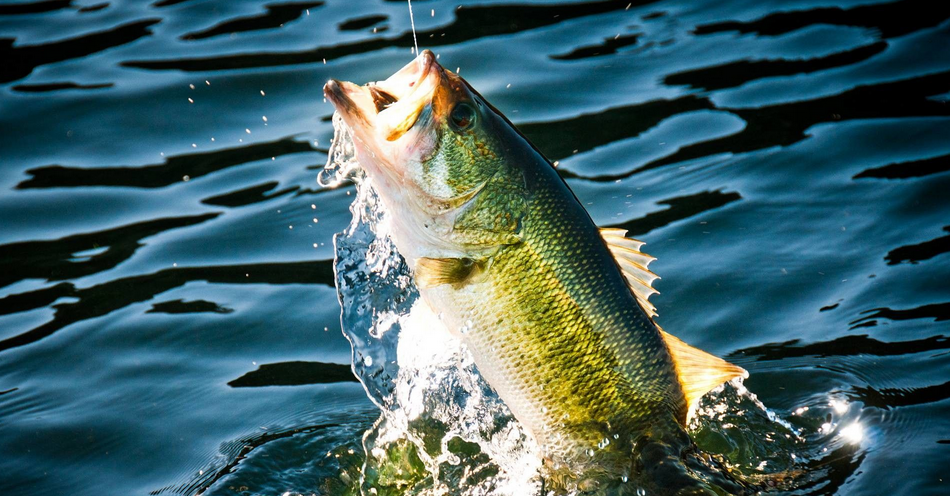Bass Fishing: A Beginner's Guide by ANGLER'S World:

Are you curious about bass fishing but unsure of where to begin? If you're looking for a bass fishing beginner's handbook, go no further than ANGLER'S World. We wish to share the years of expertise and knowledge our specialists have with you. Everything you need to know to start bass fishing, from gear to methods, will be covered in this article.
Introduction to Bass Fishing:
Let's go through the fundamentals of bass fishing before getting into the details. Popular bass fishing entails employing a variety of tactics and strategies to capture several kinds of bass, including largemouth, smallmouth, and spotted bass. Lakes, rivers, and ponds are just a few of the water basins where bass fishing is permitted.
Equipment Needed for Bass Fishing:
One of the most important aspects of bass fishing is having the right equipment. ANGLER'S World recommends the following equipment for beginner bass anglers:
Rod and Reel:
Choose a rod and reel that are appropriate for the type of bass fishing you plan to do. For beginners, a medium-action spinning rod and reel is a good choice.
Line:
Select a fishing line that is appropriate for your rod and reel. Monofilament line is a good choice for beginners, as it is versatile and easy to use.
Lures:
There are many types of lures that can be used for bass fishing, including crankbaits, spinnerbaits, jigs, and soft plastics. Experiment with different types of lures to find what works best for you.
Tackle Box:
Invest in a tackle box to keep your equipment organized and easily accessible. Be sure to include extra fishing line, hooks, and sinkers.
Techniques for Bass Fishing:
Once you have your equipment, it's time to learn some bass fishing techniques. ANGLER'S World recommends the following techniques for beginner bass anglers:
Casting:
Casting is the act of throwing your line into the water. To cast, hold the rod with both hands and pull the line back with your dominant hand. Then, quickly flick the rod forward to release the line.
Retrieval:
Retrieval is the act of reeling in your line after casting. There are many ways to retrieve your line, including slow and steady, fast and jerky, and stop-and-go.
Setting the Hook:
Setting the hook is the act of pulling your rod upwards to set the hook in the fish's mouth. Do this quickly and with force to ensure that the hook is set properly.
Fighting the Fish:
Once you've hooked a fish, it's time to fight it to the surface. Keep the rod tip up and reel in the line while keeping tension on the fish.
Tips for Success:
Here are some additional tips from ANGLER'S World to help you succeed at bass fishing:
Research Your Location:
Before heading out to fish, research the location you plan to fish in. Look for information on the types of bass in the area, as well as the water depth and temperature.
Practice Patience:
Bass fishing requires patience. Don't get discouraged if you don't catch anything right away. Keep practicing and trying different techniques.
Respect the Environment:
When fishing, be sure to respect the environment and follow all rules and regulations. Leave the area cleaner than you found it.
Conclusion:
In conclusion, bass fishing can be a fun and rewarding experience for beginners. With the right equipment, techniques, and tips, you can become a successful bass angler in no time. Remember to always respect the environment and practice patience. Happy fishing!
FAQs:
What is the best time of day for bass fishing?
A: Bass are most active during low-light periods, such as dawn and dusk. However, they can be caught throughout the day with the right techniques.
What is the best type of lure for bass fishing?
A: The best type of lure depends on the location and conditions. Experiment with different types of lures to find what works best for you.
Do I need a fishing license to go bass fishing?
A: Yes, in most places you will need a fishing license to fish for bass. Be sure to check the regulations in your area before heading out.
Can I eat the bass I catch?
A: It is legal to keep and eat bass in many places, but it is important to check the regulations in your area before doing so. It is also important to practice sustainable fishing and only keep what you plan to eat.
What is the biggest bass ever caught?
A: The world record for the biggest largemouth bass ever caught is 22 pounds, 4 ounces.
- Art
- Causes
- Crafts
- Dance
- Drinks
- Film
- Fitness
- Food
- Juegos
- Gardening
- Health
- Home
- Literature
- Music
- Networking
- Other
- Party
- Religion
- Shopping
- Sports
- Theater
- Wellness
- IT, Cloud, Software and Technology


